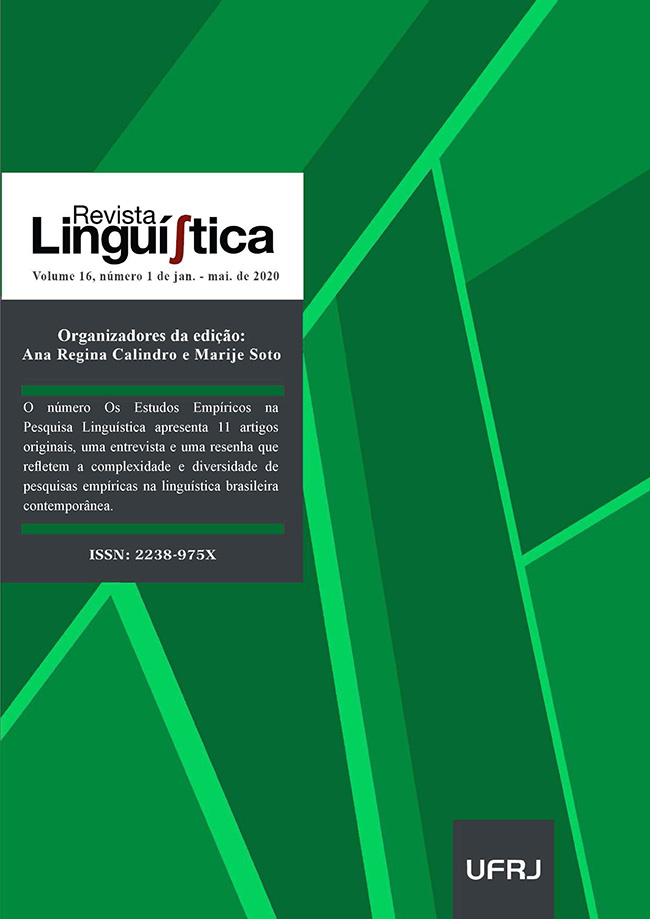The role of constructional morphology in the formation of neological anthroponyms
DOI:
https://doi.org/10.31513/linguistica.2020.v16n1a31661Keywords:
Onomastics. Construction Morphology. Cognitive Linguistics.Abstract
This research intends to observe the role of Construction Morphology in the formation of neological anthroponyms according to the theoretical framework of Cognitive Linguistics. The anthroponyms in question come from the corpus analyzed by Rodrigues (2019), namely, the records of individuals who, at the end of the 19th century until the beginning of the 21st century, wished to be linked to the Ordem Terceira do Carmo (Third Order of Carmel), located in the historic center of the city of Salvador (Bahia, Brazil). The anthroponyms selected present, in their constructions, formatives linked partially or wholly to a Germanic origin, due to the History of the Iberian Peninsula occupation by “Germanic people”, which influenced the anthroponomic lexicon of Brazil, not only by the presence of such formatives, but also by the inheritance of the bitematic model, from which the union of two bases results in a new lexical item. The neology criterion comes from the fact that anthroponyms are not included in some of the main onomastic dictionaries in Portuguese: Nascentes (1952), Guérios (1981) and Machado (2003). The results show it is possible to confirm the presence of the bithematic model in neological anthroponyms. Furthermore, when the individuals were exposed to a set of anthroponyms that use formative data or a very productive anthroponym, they are able to take the model and reproduce it by creating new anthroponyms by analogy. This is can be demonstrated from specific constructional schemes, according to the assumptions of Cognitive Linguistics.
Downloads
Published
Issue
Section
License
Authors who publish in the Revista Linguí∫tica agree with the following terms:
The authors maintain their rights, ceding to the journal the right to first publication of the article, simultaneously submitted to a Creative Commons license permitting the sharing with third-parties of published content as long as it mentions the author and its first publication in the Revista Linguí∫tica.
Authors may enter into additional agreements for the non-exclusive distribution of their published work (for example, posting in online institutional or non-profit repositories, or book chapters) so long as they acknowledge its initial publication in the Revista Linguí∫tica.

The journal Revista Linguí∫tica is published by the Post-Graduate program in Linguistics of UFRJ and employs a Creative Commons - Attribution-NonCommercial 4.0 International (CC-BY-NC).









